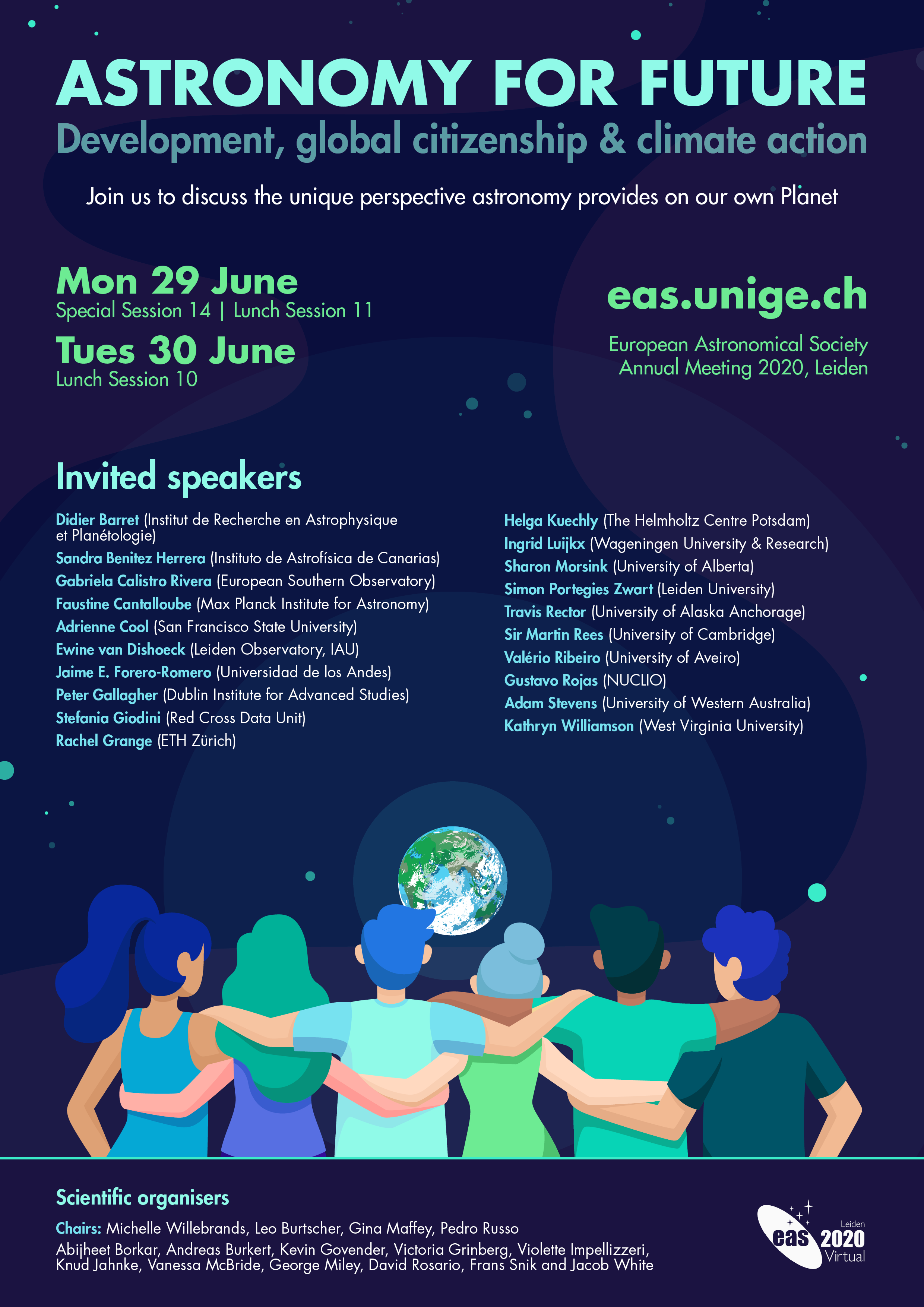EAS Annual Meeting 2020
There will be a special session about astronomy for development and climate action during the virtual EAS Annual Meeting 2020, as well as two related lunch sessions on sustainability and development.

Online conference sessions:
There will be three related sessions about astronomy for development and sustainability. You can find the session pages and programmes here:
- Special Session 14: Astronomy for Future: Development, Global Citizenship & Climate Action
- Lunch Session 11: Astronomy for Future: Maintaining world-class research and collaboration in the climate crisis
- Lunch Session 10: Astronomy for Development
Aims and scope
- Expand the Astronomy for Development community to work on international and sustainable development.
- Present current astronomy for development activities and opportunities globally.
- Promote astronomy outreach for climate change.
- Explore actions that we can undertake to foster sustainable practices in astronomy.
Rationale
Because of its links with fundamental sciences, advanced technology and culture, astronomy can contribute uniquely to help stimulate sustainable development and specifically, the UN Sustainable Development Goals (SDGs). In the last decade, the IAU has set up the Office of Astronomy for Development and created a network of regional offices throughout the world to use astronomy as a tool for international development. The European Regional Office of Astronomy for Development (E-ROAD) was established at Leiden in 2018 as a partnership between the European Astronomical Society and Leiden University. Amongst other projects, the E-ROAD is presently developing a global education project, Pale Blue Dot, to promote global citizenship in young children, and is also setting up a twinning programme between astronomy departments worldwide to share expertise and stimulate capacity building.
Astronomy also provides society with a unique perspective of our place in the Universe and the fragility of our planet. In the face of increasing global temperatures and climate change, there is a pressing need for astronomers to realise the role that they can play in communicating the uniqueness of planet Earth and ensuring a sustainable future. Aside from any feeling of ethical obligation to take part in this global movement, there are also the direct practical considerations for how astronomy can operate as a discipline in changing environments. The potential for astronomers to contribute to sustainability is two-fold: implement outreach activities to convince people to adopt an environmentally-friendly view & transforming astronomy to adopt sustainable practices.


